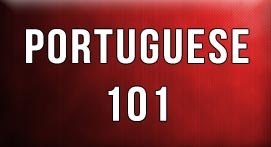Hey folks, it’s been a while since I’ve posted here and with good reason…
Things have taken off for me in a way that I never imagined possible: I’ve now grown to have the second largest online English school in Brazil! Though in the meantime, this blog has continued in my heart.
It is neither forgotten nor abandoned, and therefore when a friend of mine named James asked if he could put some content up… I naturally hoped on it: the opportunity to get new stuff up and help a buddy out is a win-win!
Without further ado, here is a post from James from Semantica:
Vocab, vocab, vocab.
Whatever technique is working for you in your quest to master the language, there is no getting around the fact that when it comes to portuguese vocabulary, the more the better. Kindly ignore any learning program that says to just start talking with the bare minimum of vocabulary. Whether you prefer a conversational approach to language learning, or a more traditional grammar-rules based approach, you need vocab and you need it fast.
This works subliminally. Label everything you want to know the name of in your house with a post-it note. Every time you open the kitchen cupboard you will see the word “armário”. Remove them when you find yourself seeing these words in your head before you are in eyesight of the item.
Wait. Don’t skip down to the next tip. You already know about flashcards but I doubt you know how to supercharge them. It took me a while to perfect this process but once I did, I easily gained thousands of new words – many of which are low-frequency (not used every day). The low frequency vocab normally takes years and years to get. But without these you’ll be stuck in beginners camp always using the most common words.
- Keep your cards + a pen near you, with 5-10 blank ones on top.
- Never let the deck exceed ~10 cards.
- Spend no more than 5 minutes per day doing this routine. Never miss a single day. Never.
- Start with the english side first.
- Say the answer out loud (or whispered).
- Rotate through the deck.
- Place a card on the table only when you’ve gotten it correct 3 times in a row – without much stress.
- Keep going until all the cards are on the table or the 5 minutes is up.
- If all cards are retired and you still have time, shuffle the deck and flip them over to do the portuguese side.
- Only when a card has been correctly memorized 3 times in a row – both sides, can it be removed.
- Replace the retired cards with new ones as they come up in your studies or thoughts.
Cognates are words that share a common origin. Many portuguese words are very similar to english and thus EASY to learn. While these are not always the most commonly used words, I’m going to show you 100 portuguese verbs that are so similar to english AND in common usage here. You can and should learn these right now. I would strongly recommend using these BEFORE trying to memorize the “core” portuguese verbs. These are just as good, everyone will understand you without hesitation, and you will get into the conversation right away. If you can , and you’ve done some of steps 1 & 2 above, you will have THOUSANDS of sentences at your disposal really, really quickly. 100 top Portuguese Cognates (just verbs):
about learning Portuguese of Brazil, there’s a world of opportunity and adventure waiting for you. But only if you can speak their language. For the motivated, check out our other posts under the category of .

